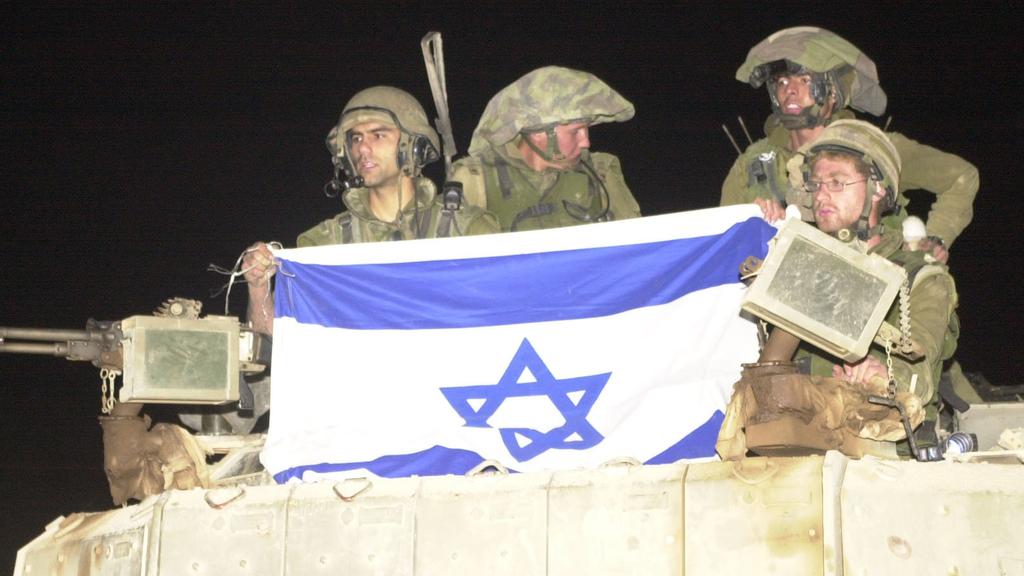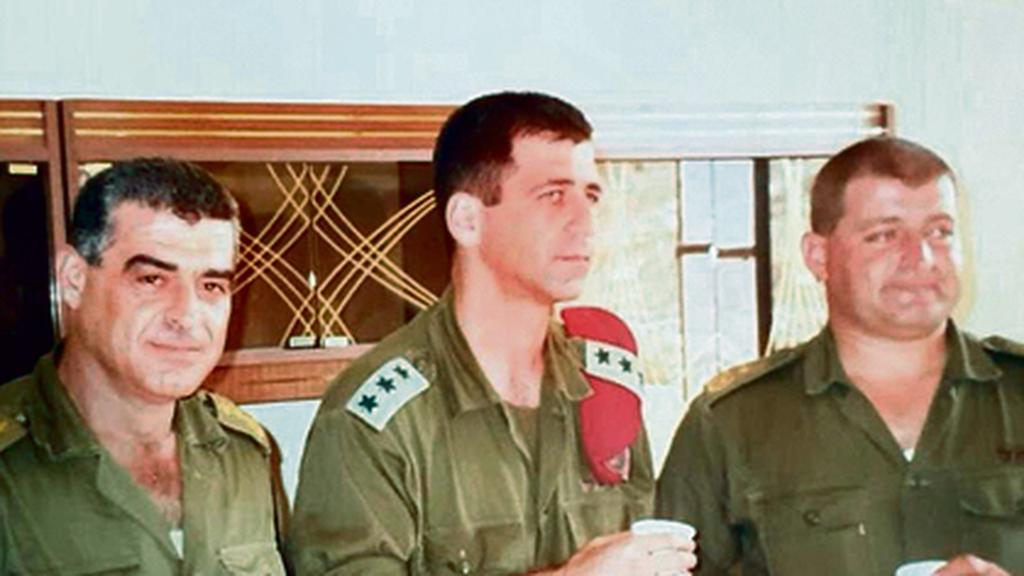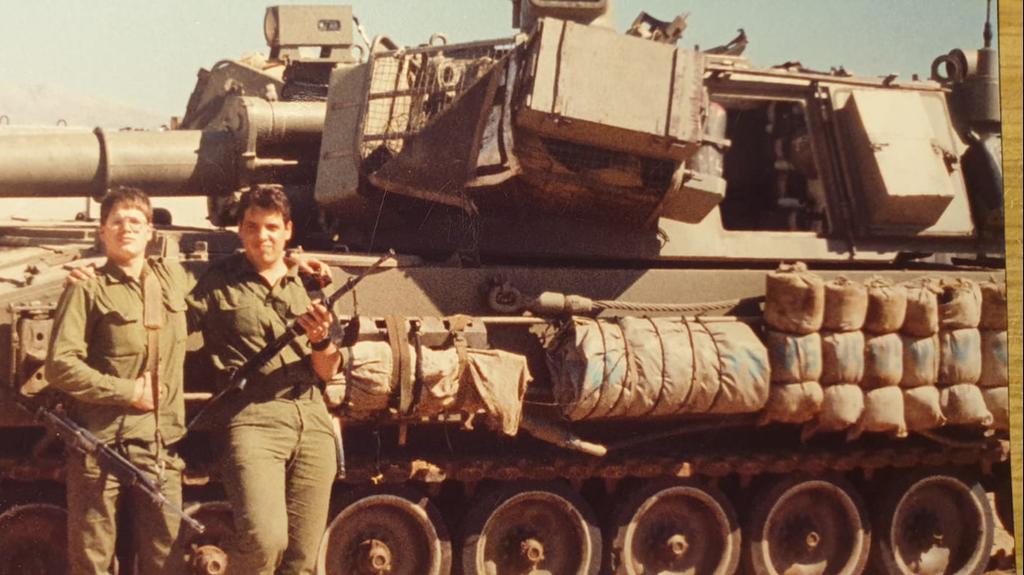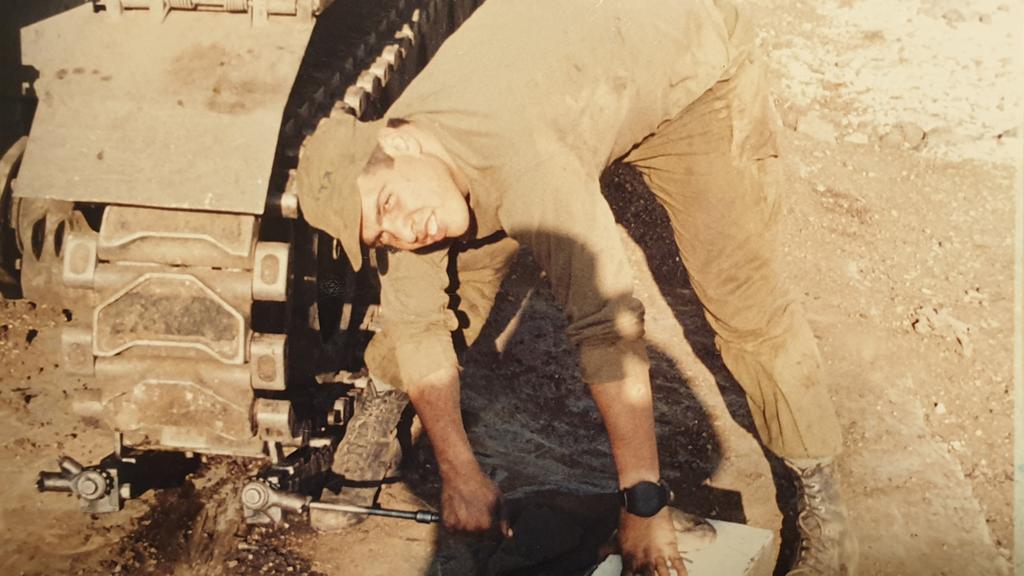Sunday marks exactly 20 years since IDF forces pulled out of southern Lebanon, but there is no ceremony, no lowered flag and no speeches.
This event is remembered mainly on social media by those who spent 15 years between 1985 and 2000 in military positions throughout the security zone, fighting stubbornly against Hezbollah terrorists' guerrilla warfare in a decade-and-a-half battle still not defined as a war.
4 View gallery


IDF troops hold an Israeli flag after leaving Lebanese territory, May 2000
(Photo: Effi Shrir)
In recent weeks, as May 24 drew ever closer, various Facebook groups were created by the soldiers who served in these outposts.
They all remember the fighting, the bombardments, the convoys, the wounded, and the 414 brothers in arms whom they lost in the conflict.
On the eve of May 24, 2000 - after a long public battle led by the Four Mothers protest movement, then-Prime Minister Ehud Barak fulfilled his election promise and pulled the IDF out of Lebanon.
In 1998, current IDF Chief Aviv Kochavi was promoted to the rank of lieutenant colonel and appointed commander of the eastern brigade in the Yakal (the IDF unit that liaised with the SLA), under the command of Brig. Gen. Erez Gerstein, who fell in battle a year later.
"The generation of commanders that make up the General Staff grew up in the wadis and ambushes of the security zone," said Kochavi this week, recalling the period bogged down in Lebanon.
"This is a time when we were personally and professionally molded," said the chief of staff, who spent many years fighting in Lebanon.
“I carry with me the image of my friends, who fell on Lebanese soil, and embrace their families," he said.
Kochavi also paid tribute to the fighters of the Southern Lebanon Army, a pro-Israel militia whose members fought alongside the IDF.
4 View gallery


IDF Chief Aviv Kochavi, center, with his members of the South Lebanon Army
(Photo: Archive)
These fighters include Nabi Abu Rafah, who was commander of the SLA's Eastern Brigade, and Samir Mehra, an SLA battalion commander. The two, like many other members of the SLA, fled Lebanon when the IDF left.
The IDF chief keeps in close contact with the two to this day, and they were both invited to meet with Kochavi on the day he took office as the head of the Israeli army.
“Over the years, the enemy in Lebanon improved, and gradually adopted guerrilla fighting patterns. It took the IDF several years to recognize and acknowledge it,” Kochavi said.
“At the operational level, this was a major lesson - the necessity for self-reflection and clear inquiry, which leads to the evolution of the military and its methods of operation.”
He added: "The years of fighting in Lebanon are a lesson that we must exhaust to its fullest. One of the key lessons of the time is the ability to identify and interpret a given situation.”



